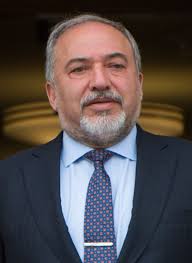Israel Eases Social Distancing Restrictions
Efforts to agree on a unity government, however, dim as Knesset is tasked with choosing a new prime minister.

As Israel started a gradual loosening of its restrictions on personal movement and businesses on Sunday amid the continuing COVID-19 pandemic, progress on a new government remained at a standstill.
The so-called emergency unity government between Prime Minister Benjamin Netanyahu’s Likud party and his chief opponent Benny Gantz’s Blue and White party has not emerged. This prompted Israeli President Reuven Rivlin on April 16 to task the Knesset with choosing one of its 120 members to attempt to cobble together a majority government.
According to Israeli law, the Knesset, or parliament, has only 21 days to accomplish the task. The chosen Knesset member would have 14 days in which to form a government. If this fails, an unprecedented fourth election would be called, probably for August.
After three failed elections in which no party was able to achieve a majority coalition, Israel is no closer to replacing the current caretaker government with one chosen by Israeli voters. Israel launched this long election era in late 2018.
Despite the drastic shutting down of the country’s economy, resulting in 20 percent unemployment and keeping non-essential workers inside their homes, the nation’s political leaders didn’t see it as an emergency to create a functioning government.

According to Israeli press reports, the COVID-19 pandemic was barely a subject of the negotiations between Netanyahu and Gantz. Instead, it was the possible annexation of parts of the West Bank and Netanyahu’s efforts to determine the makeup and power of the country’s judicial system. He is still facing several corruption charges for which he’s been indicted. His trial was to be in March, but this was rescheduled to May because of the closure of most of Israel’s courts during the pandemic.
Most polls show that Israeli voters prefer a unity government over returning to elections in a few months, when social distancing may or may not still be a concern. One political party, Yisrael Beytenu, is trying to force the issue by putting pressure on Netanyahu to sign a coalition agreement with Blue and White’s leaders. The party, led by Avigdor Lieberman, last week proposed five bills in the Knesset that would include forbidding a member of the Knesset facing criminal indictment from serving as prime minister.
“Even if we’re not part of it,” Yisrael Beytuenu supports a unity government, said Lieberman in an interview with The Times of Israel. “It’s clear to us in Yisrael Beytenu that the only way to bring Netanyahu to an emergency government, even for a limited time, is to put a tangible and believable threat on the table.”
Yair Lapid, leader of the Yesh Atid-Telem faction that had been a part of the Blue and White party in the last few elections, proposed a six-month political freeze to prevent a rush to another election. “In six months, we’ll come back to the same situation,” he was quoted by TOI. “In those six months, instead of dealing with politics we will work to save the economy and the healthcare system and people’s lives. In those six months, the transitional government will continue. I think it’s a bad government, but it won’t be able to do whatever it wants because we’ll control the Knesset,” Lapid added.

Lapid was referring to the fact that Benny Gantz is speaker of the Knesset and Blue and White party members have been named to head several significant Knesset committees because Gantz had initially received a majority of recommendations to Rivlin to be tasked with forming a government.
“A freeze isn’t ideal,” Lapid added. “It’s not what we wanted. But it’s better than crawling into a corrupt government. It’s definitely better than fourth elections.”
As of press time, Gantz was reportedly still hoping to sign a coalition agreement with Netanyahu before Monday when he, too, had threatened legislation to bar Netanyahu from heading a new government as a result of the indictments hanging over his head.



comments